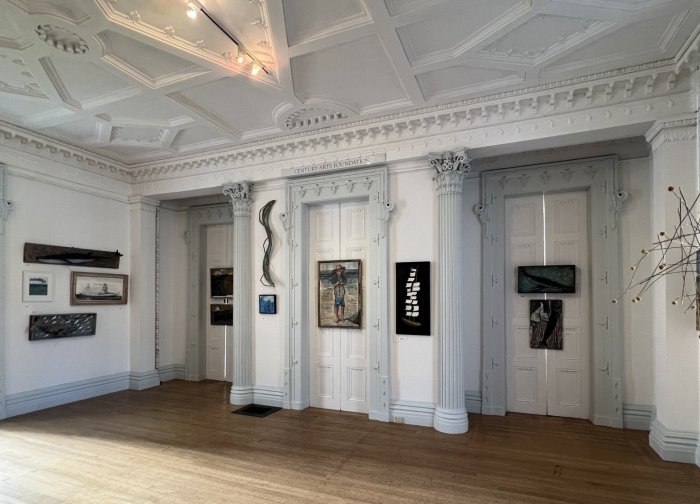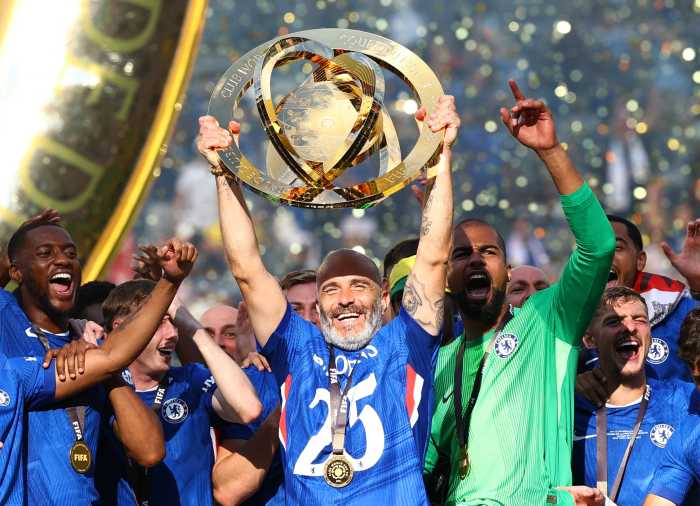It Was Personal
Ever since 9-11 there was a score to settle. It wasn’t enough that the United States military crushed the Taliban at Tora Bora. He had somehow gotten away, snaking his way through the rocky, labyrinthine trails deep in the Afghan mountains and into some godforsaken sanctuary. President Bush said it didn’t really matter he got away; but in truth the fact gnawed at him and it gnawed at all Americans who knew that as long as he was free there was unfinished business.
Whatever victories we won on the battlefield, it was always about the tall, turbaned, bearded one: The mastermind of September 11, the mass murderer, the one whose visage bore a disturbing and uncanny resemblance to some Mid-Eastern Mephistopheles. I don’t believe there was ever a villain in American history that evoked more loathing and anger than Osama bin Laden. King George III? — the mad King was light years away from the crimes of bin Laden. Not even Adolph Hitler and his monstrous acts provoked in Americans the kind of visceral thirst for vengeance that bin Laden did. Hitler, though cold-bloodedly evil, never directly attacked American soil, or killed Americans before a state of war existed between the two nations. As for the death camps, by the time most Americans learned of the atrocities that occurred there, the war was over and Hitler was dead.
Perhaps Yamamoto, who orchestrated the surprise attack on Pearl Harbor, could be said to have aroused the same feelings of revenge. No doubt those emotions were palpable if not explosive. The images of the unprovoked attack on our fleet, smoldering in the blue waters of Hawaii, had a tragic affinity to the burning towers under the blue skies of New York. The difference was that on the morning of Dec. 7, 1941, few people even knew of the naval base at Pearl Harbor; but everyone knew about the Big Apple, the greatest city in the world and the majestic Twin Towers that overlooked the great harbor in downtown New York. This was not an attack on a military base, but upon a city, directed at unarmed, everyday citizens going to work.
September 11, 2001 is a day that will never rest in peace; the purple buntings of mourning will never be effaced from the altars of remembrance, it walks in the valley of the shadow of death; its pall of grief forever enshrouds our city and country. Yet, we have been deepened by its experience; united by a shared and ineffable memory of loss, and from the crucible of our national bereavement, we are immeasurably strengthened. Its aftermath demonstrates what is so identifiably unique about America: its ability to meet challenges and create change not only in our own society but throughout the world. It is the nature of our American democracy to strongly disagree, but at their very core the people of the United States are a deeply moral and patriotic people joined by a love of country. We truly believe in justice, that right makes right, which explains the outpouring of joy, relief and the profound emotional satisfaction of Americans who gathered at the White House and Ground Zero after hearing President Obama’s elegiac words about the devotion and intrepidness of our soldiers, the sacred bonds that bind us as Americans, and that by persistence and plain American know-how justice had finally come to bin Laden, who had for so long, tormented and haunted our dreams.
The morning after the president’s announcement, I made a small pilgrimage to Heritage Park, where the names of those from Floral Park who had died on 9-11 are memorialized. As deputy mayor, I attended their heart-wrenching funerals and memorials. I also remember driving down to Terrace Avenue to pay my respects to Bill Bratton, for years a friend and political associate. I don’t believe I have ever met a finer gentleman than Bill. More than two weeks had passed since the attack, when I learned that his granddaughter, Michelle, who worked in the Towers was still missing. As Bill invited me in, I braced myself to console him with the usual painful and inadequate words, but nothing could prepare me for what I saw and heard. The burning of religious candles surrounded a gigantic, smiling photograph of Michelle, which hung across what seemed nearly his entire living room wall. She was young, petite and just so, so beautiful. I read the description that back then so commonly accompanied photographs of the missing: Female, 23 years old, 5’1, 105 lbs. The vital statistics gave, as they always do, the barest outline of what had once been the miracle of a unique and irreplaceable life.
Her shattered and heartbroken parents sat silently on the sofa as if holding a vigil before the shrine of their daughter. I was offered something to drink. And then slowly, almost deliberately, they began to tell me about Michelle and what a vibrant and spirited young woman she was, and so thrilled to be working in the big city. I asked where she worked and they told me Cantor & Fitzgerald. How long was she working there? “Two – maybe three weeks,” her Mother said almost inaudibly. By now, hope for Michelle’s survival was all but extinguished and both parents were grappling with the knowledge that under the mountain of rubble that was once the World Trade Center, their beautiful little girl was lost forever. Still, they hoped and prayed that something, anything of what they loved most in the world would be found: a fragment of bone, a tooth, a broken nail, a solitary eyelash. In a world of such big and trivial wants, it seemed pathetically little to ask for.
As I left, Bill nodded silently as the parents hugged me and told me how much my coming to the house meant. I mumbled something to the effect that ‘it was the least I could do.’ Entering my car in a cloud of sorrow, I fumbled meekly to place the key in the ignition before it inadvertently dropped in my lap. I just sat there numb for a few seconds, then wrapping my arms around the steering wheel, I laid my head down and wept.
I did not know Michelle Bratton in life, nor did I know most of the people who died that day. That is true of all of us. This does not diminish the emotional and intimate connection we, the living, have with the dead of 9-11. “They were all my sons,” said Arthur Miller in his famous play. And so they were. The “loved and lost” of 9-11 are all our sons and daughters, our mothers and fathers — as related to us as if we were all borne by the same womb: The womb of American promise. America has always been so much more than bloodlines; it’s about shared beliefs and common ideals. Our consanguinity is deeper than anything chemistry or biology can produce; a connection that was movingly expressed by one anonymous individual who walked to Ground Zero late Sunday evening upon hearing the news of America’s vindication. The evening had settled in heavy and pitch-black; but for the first time in 10 years shafts of light penetrated the darkness and you could hear, or so he said, three thousand souls letting out a cheer.


































